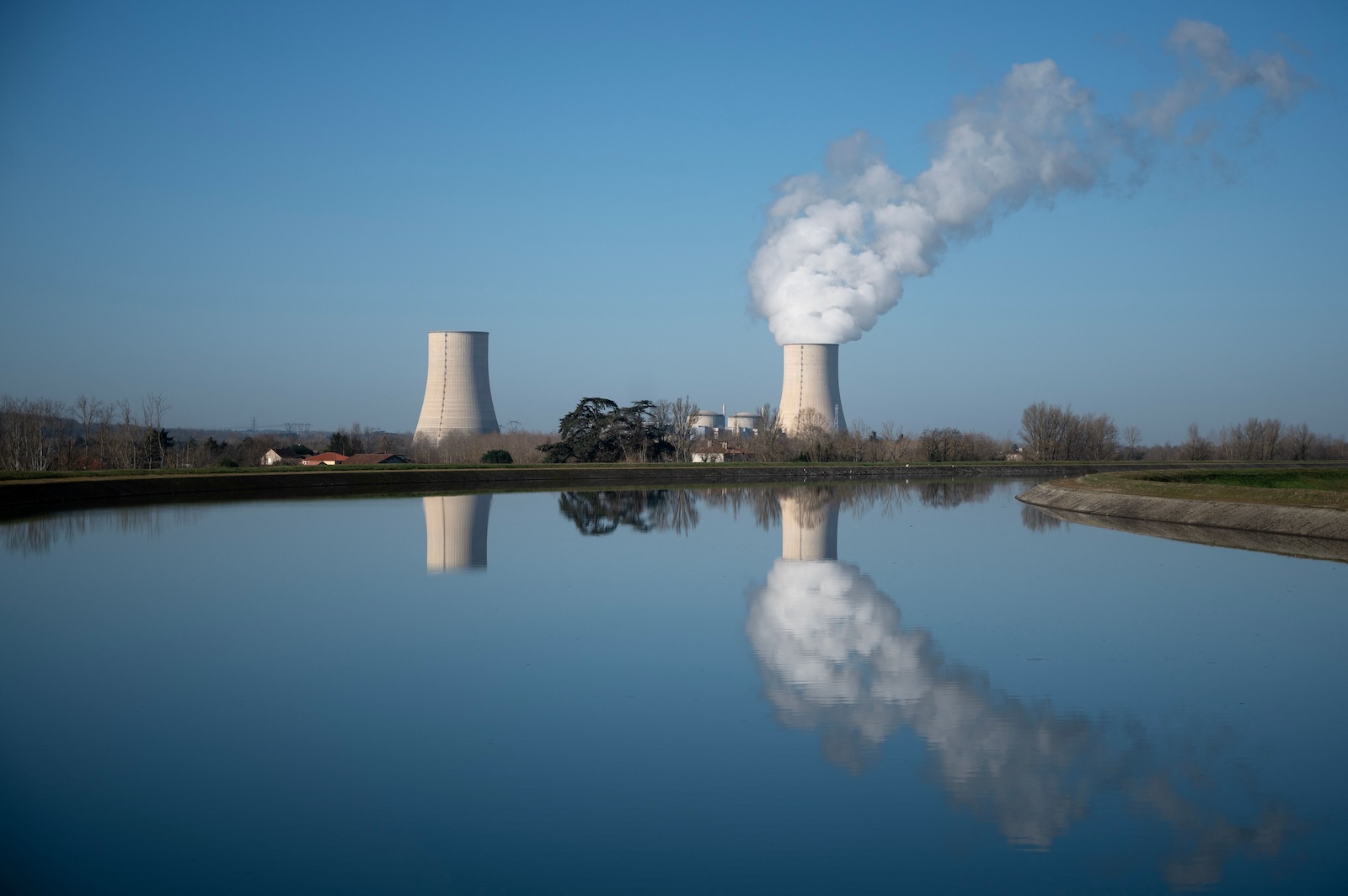This coverage is made possible through a partnership with Grist and Interlochen Public Radio in Northern Michigan.
The owners of a shuttered nuclear plant on the shores of Lake Michigan are still banking on its historic reopening later this year, despite the confusion of President Donald Trump’s first days.
The Palisades Nuclear Plant ran for over 50 years in southwest Michigan’s Covert Township before it went offline, seemingly for good, in 2022. Soon after, lawmakers across the political spectrum and owner Holtec International pushed for a reversal. Holtec officials say they’re confident in the restart, partly because Trump’s administration has signaled strong support for nuclear power.
However, Trump’s messaging on nuclear hasn’t been uniform in the past, and more confusion has been kicked up by orders to pause Inflation Reduction Act funding and a now-rescinded memo calling to temporarily pause all federal loans and grants.
Such an environment could complicate things for projects like Palisades that require stability to plan for, say, large capital investments, according to Josh Freed, senior vice president for climate and energy at the centrist think tank Third Way.
The nuclear industry needs to know that policies, regulations, and promised funding “are actually delivered on time and in predictable ways,” he said. (Third Way supports the restart.)
The White House Office of Management and Budget did not respond to requests for comment.
There’s been renewed interest in nuclear power — and restarting mothballed plants — amid increased demand for electricity from technologies like data centers and efforts to lower greenhouse gas emissions.
Last year, the Biden administration pledged about $2.8 billion in Inflation Reduction Act funding toward the restart and other clean energy, including a $1.5 billion loan for Holtec and $1.3 billion in grants to help two rural electric cooperatives purchase that power: Indiana-based Hoosier Energy and Michigan’s Wolverine Power Cooperative.
Based in northern Michigan, Wolverine plans to buy over half of Palisades’ energy — whether or not it receives the estimated $650 million in IRA funding, which the co-op said would be passed along to customers.
Michigan law requires 100 percent clean energy by 2040, and it considers nuclear power clean. The state is allocating $300 million for the plant’s restart, which is expected to bring back 800 megawatts of power — enough for some 800,000 homes.
Wolverine officials said this would allow their members to reach the state’s energy goals a decade ahead of time. Zach Anderson, the chief operating officer, said during an interview with Grist in October that Palisades was a “perfect fit” for the co-op.
If the restart doesn’t happen, he said Wolverine wouldn’t lose money, but would have to take more time and “a lot more solar to replace something like Palisades.”
Now the co-op is figuring out what to make of Trump’s orders to pause and review IRA spending, and subsequent guidelines.
Officials with Holtec maintain that they don’t pose a problem, and that the Department of Energy will stick to the $1.5 billion loan. As for the power purchase agreement with the electric cooperatives, it “was completed well before any grants were factored in,” said spokesperson Patrick O’Brien in an email.
Nuclear power is polarizing, and behind the latest deluge of executive actions, the debate continues around whether and how much to rely on, invest in, and develop it.
Critics — and even Trump himself — have pointed to the industry’s history of delays and going over budget, like the new Vogtle reactors in Georgia, which came online years behind schedule.
Kevin Kamps, a radioactive waste specialist with the group Beyond Nuclear, thinks the Palisades restart is ill-advised.
“This is unprecedented risk taking that they’re talking about now. They’ve never done this before. It’s not needed,” he said. “Renewables are really the way to go, not resurrecting very problematic nuclear power plants.”
Beyond Nuclear has been an outspoken critic of Holtec, with longstanding concerns including radioactive contamination and nuclear waste storage. It has also intervened in the licensing process for the restart. Kamps said if necessary, they will take the matter to federal court.
“We’ll fight it as long as we can, till the last opportunity,” he said. “We feel that strongly about it.”
Environmental groups like Sierra Club Michigan have spoken against the restart as well, urging the state to develop renewables and energy storage instead.
While renewable energy has been on the rise — and generated over a fifth of the country’s electricity in 2023 — nuclear power is the third-largest source, something its supporters say can’t be dismissed. A common argument for nuclear is that it provides a baseload of power necessary to supplement less reliable renewable technologies harnessing the sun and wind.
Of course, developing nuclear power is expensive. Allison Macfarlane, a professor and director of the University of British Columbia’s school of public policy who chaired the U.S. Nuclear Regulatory Commission from 2012 to 2014, said advancing nuclear technology, including things like smaller reactors, will require federal support.
“To bring any of these new technologies to a real commercial level will take an investment of tens to hundreds of billions of dollars. The only place where you can find that amount of money is the government,” she said, pointing out that the Trump administration wants to cut costs.
There are also procedural obstacles. Before reopening the Palisades plant, Holtec must get approval from the Nuclear Regulatory Commission, which will assess the facility, including its safety and infrastructure. For instance, inspectors are looking at issues with the plant’s steam generators, and regulators have called Holtec’s timeline “very, very demanding.”
More broadly, the recent funding back-and-forth may complicate the landscape for nuclear, according to Tyler Norris, who worked in the Department of Energy during the Obama administration and is now a fellow at Duke University.
“Based on real-world conversations with regulators, I can say firsthand that the uncertainty the Trump administration has created around the future of these programs is dampening the investment environment for advanced nuclear,” Norris said.
Others say Trump’s support for nuclear is clear in signs like his pick for energy secretary, fossil fuel executive Chris Wright, who has talked about expanding it. Quill Robinson, a senior advisor with the right-of-center nonprofit ConservAmerica, thinks that could continue.
“For many Republicans who have questions about the intermittency issues of wind and solar and the concentration of renewable supply chains in China, they see nuclear as a solution that also happens to be quite environmentally friendly,” he said. “So I would imagine that this administration is going to be pretty bullish on [nuclear] technology.”






